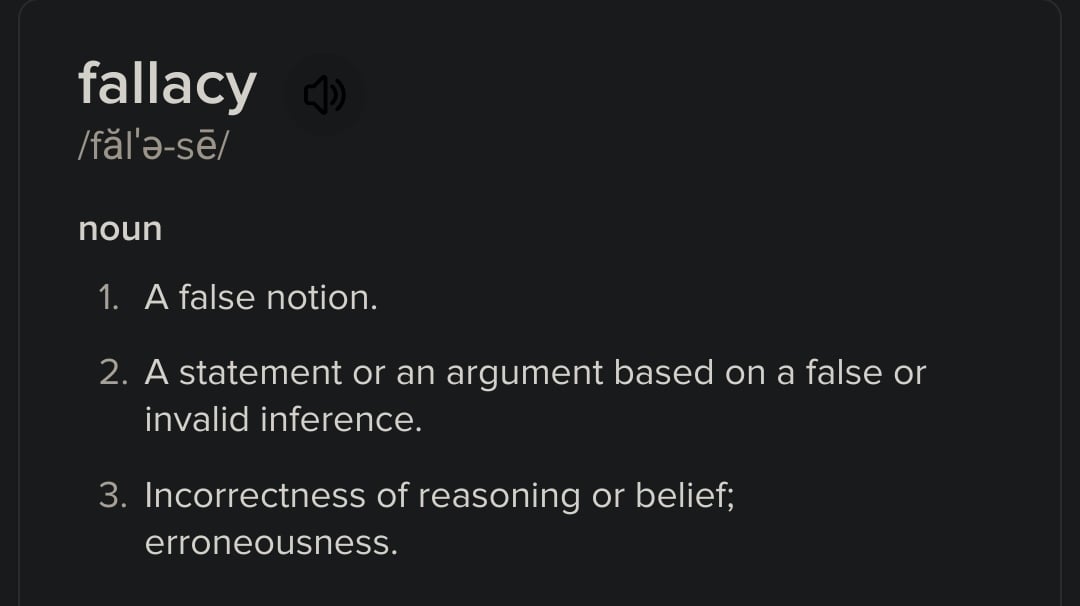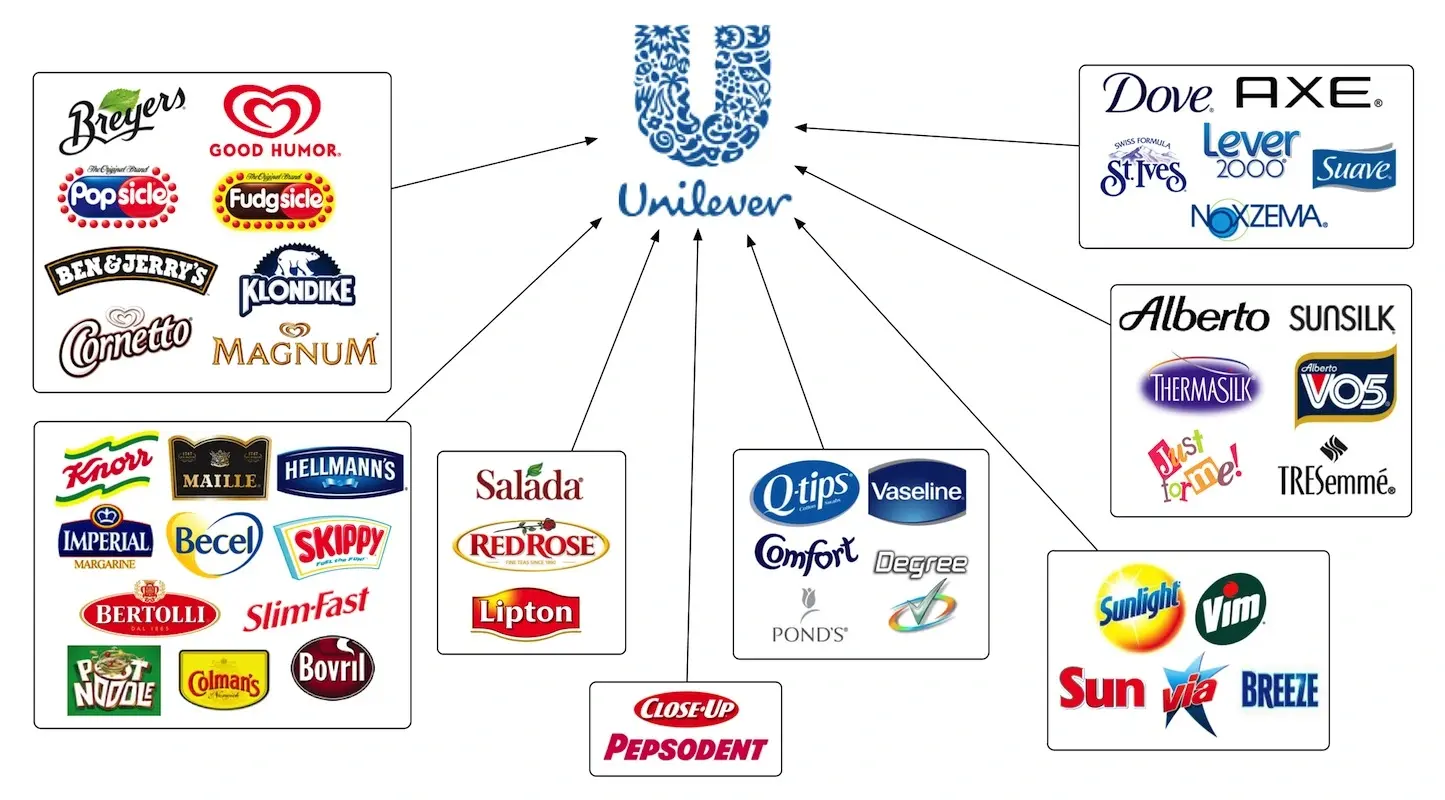- cross-posted to:
- news@beehaw.org
- cross-posted to:
- news@beehaw.org
Ice cream brand Ben & Jerry’s said in a lawsuit filed Wednesday that parent company Unilever has silenced its attempts to express support for Palestinian refugees, and threatened to dismantle its board and sue its members over the issue.
The lawsuit is the latest sign of the long-simmering tensions between Ben & Jerry’s and consumer products maker Unilever. A rift erupted between the two in 2021 after Ben & Jerry’s said it would stop selling its products in the Israeli-occupied West Bank because it was inconsistent with its values, a move that led some to divest Unilever shares.
The ice cream maker then sued Unilever for selling its business in Israel to its licensee there, which allowed marketing in the West Bank and Israel to continue. That lawsuit was settled in 2022.
deleted by creator
Surprise! Corporate leftism is a lie!
Unilever-never-left-russia Unilever? Unilever the piece of shit fascist toadies Unilver? That one?
Huh.
The same Unilever known for abusing caged dogs while testing products on them?
Looks like I’ll never get to taste Chunky Gaza Green Tea Genocide…thanks a lot Unilever
Such a shame! Dairy Free Darfur Durian was one of their best flavors!
Boycott Unilever. Ironically that includes Ben & Jerry’s until they manage to break free from Unilever.
I have been for a while now because they’re still operating in Russia. Fuck 'em.
things just got exponentially worse for everyone on the planet who isn’t a billionaire, but anyway let’s talk about ice cream company’s problems
For the US, definitely… But the rest of the world doesn’t just stop happening because Donald Trump got elected.
Palestine, Ukraine, and Taiwan might stop happening.
Yes. And this story is indirectly related to one of those.
Trump’s 2nd Term will definitely have knock-on effects to the rest of the world, but it isn’t like the rest of the world stops.It’s like back in the Covid Lockdowns - every other disease didn’t just decide to take time off because of Covid being in the zeitgeist.
What do you mean rest of the world? There is only one that matters. bald eagle sounds assault rifles firing incoherent chanting in background
After reading this comment and the article, I feel there is actually some perspective hidden here that may need addressing.
While a million dollars to most of us seems unobtainable, a billion dollars is still unobtainable to most millionaires. It’s 1000x or 3 factors of 10 or however you wish to look at it. Huge difference. Nobody if offered either a million or a billion dollars would say there’s no substantial difference.
Google tells me Ben Cohen and Jerry Greenfield are worth about $150 million each. That’s a hell of a lot of money to be sure.
Current market cap on Unilever is around $144 billion. One thousand times more than either Ben or Jerry.
When we’re in a time where some are starting to say even a million dollars is no longer a guaranteed good retirement savings, and when people with 150x that much are being silenced, maybe we also need to update our thoughts on the ongoing class warfare around the world.
While most of us here have different realities than Ben and Jerry, their lives are drifting closer to ours than they are for the billionaire class. To me, that is a bit scary to think of. That’s concentration of power to a much smaller group. About 1.1% of the world population, 59.4 million people, are millionaires, there are less than 3000 billionaires.
When division is what is keeping us fighting each other instead of focusing on who is really calling the shots, I feel this is an important distinction to consider. Maybe getting pissed at millionaires has now become futile. The upside is it is easier to focus on 3000 people than 60 million. That isnt to say millionaires are also an issue, but it may no longer be the most pressing one.
Open to your thoughts, I just think these numbers are pretty staggering.
Reducto ad absurdum
This is no time for casting spells.
Reducto ad absurdum is not a logical fallacy if that’s what you’re getting at. It’s a very important logical tool that happens to be a Latin phrase with a similar cadence to Latin names of logical fallacies. People on the Internet mess this up all the time, and it’s become a pet peeve of mine.
I don’t think OP is right–there’s lots of different layers to issues like this that can be explored–but not because of that.
Reducto ad absurdum is not a logical fallacy
Not inherently, no, but it is when used fallaciously. Like in this case.
Just like deliberate hyperbole is not a fallacy when used skillfully and transparently to underscore a point, it’s the context and the delivery that decides whether something is a valid reducto ad absurdum argument or a reducto ad absurdum fallacy.
In case you forgot while I was elaborating: this is a case of the latter.
People on the Internet mess this up all the time
Yeah, you’re doing it right now.
I don’t think OP is right–there’s lots of different layers to issues like this that can be explored–but not because of that
You’re sorta right about that: the way they expressed their wrongheaded opinion isn’t the cause of them being wrong, merely a symptom.
Not inherently, no, but it is when used fallaciously. Like in this case.
It never is. There might be some other logical fallacy at play. Slippery slope is a common one in cases where people cite reducto ad absurdum. But why not cite the actual fallacy rather than the one that isn’t a fallacy at all?
Or maybe don’t. Generally, logical fallacies are better used to pick apart your own arguments rather than tossing them in other people’s faces.
Just like deliberate hyperbole is not a fallacy when used skillfully and transparently to underscore a point, it’s the context and the delivery that decides whether something is a valid reducto ad absurdum argument or a reducto ad absurdum fallacy.
Nope. There is no such thing as reducto ad absurdum fallacy. I challenge you to find a citation otherwise, because I can cite a lot of stuff that talks about its use as a tool of logic and does not mention fallacies what so ever, or does so only as part of connected information.
https://en.wikipedia.org/wiki/Reductio_ad_absurdum - “In logic, reductio ad absurdum (Latin for “reduction to absurdity”), also known as argumentum ad absurdum (Latin for “argument to absurdity”) or apagogical arguments, is the form of argument that attempts to establish a claim by showing that the opposite scenario would lead to absurdity or contradiction”. The word “fallacy” does not even appear on the page except as a link to “See Also - Argument from fallacy”.
https://www.britannica.com/topic/reductio-ad-absurdum - “reductio ad absurdum, (Latin: “reduction to absurdity”), in logic, a form of refutation showing contradictory or absurd consequences following upon premises as a matter of logical necessity.” Fallacies are only mentioned further down the page as connected information.
https://www.merriam-webster.com/dictionary/reductio ad absurdum - “1) disproof of a proposition by showing an absurdity to which it leads when carried to its logical conclusion 2) the carrying of something to an absurd extreme” Again, no mention of fallacy. It’s a tool to disprove something.
https://www.logicallyfallacious.com/cgi-bin/uy/webpages.cgi?/logicalfallacies/Reductio-ad-Absurdum - “A mode of argumentation or a form of argument in which a proposition is disproven by following its implications logically to an absurd conclusion. Arguments that use universals such as, “always”, “never”, “everyone”, “nobody”, etc., are prone to being reduced to absurd conclusions. The fallacy is in the argument that could be reduced to absurdity – so in essence, reductio ad absurdum is a technique to expose the fallacy.” Note that last sentence. Reducto ad absurdum is about exposing the fallacy, not creating one. This on a web site that’s all about logical fallacies, and they ain’t saying it’s a fallacy.
https://www.cs.utexas.edu/~dnp/frege/reductio-ad-absurdum.html - “The Proof by Contradiction technique that we just described is a special case of a more general reasoning strategy called reductio ad absurdum. (Translate this literally as, “reduce to absurdity”.) We can use this more general strategy in everyday rhetoric as well as in mathematics”. Again, no mention of fallacy.
https://philosophy.stackexchange.com/questions/69916/is-reductio-ad-absurdum-a-fallacy - Top level response explicitly says it’s not a fallacy.
Edit: a few more to pile on.
https://www.quora.com/Which-type-of-fallacy-is-reductio-ad-absurdum-Whats-its-definition-example-how-it-works-in-real-life-situations - Top level response explicitly says it’s not a fallacy.
https://www.thoughtco.com/reductio-ad-absurdum-argument-1691903 - "Like any argumentative strategy, reductio ad absurdum can be misused and abused, but in itself it is not a form of fallacious reasoning. A related form of argument, the slippery slope argument, takes reductio ad absurdum to an extreme and is often (but not always) fallacious. " Here again, the argument might be making a fallacy, but reducto ad absurdum is not it.
You’re fundamentally ignoring or misunderstanding what a fallacy is. Here’s the dictionary definition:

Note that, by any of those 3 definitions, the argument that it’s absurd to take Ben & Jerry’s freedom of speech seriously because Trump is a fallacy.
Just likely a slippery slope argument is valid when a certain course of action legitimately leads to increasingly negative outcomes (such as for example treating Trump as a serious candidate in the first place in 2015), a usually valid argument technique is fallacious when used fallaciously.
And in case you still believe that nothing can be a fallacy without having the word “fallacy” in the opening paragraph of Wikipedia, I invite you to look up “hyperbole” and “slippery slope” there.
If they’re guilty of hyperbole or slippery slope, then say that. Lumping in reducto ad absurdum takes away from a very powerful and useful tool of formal logic. Overloading the term makes understanding more fuzzy, not more clarifying.
If they’re guilty of hyperbole or slippery slope, then say that
I JUST told you about how hyperbole and slippery slope arguments aren’t inherently fallacious. Just like reducto ad absurdum arguments, they’re fallacies when used fallaciously and otherwise NOT fallacies.
Is that clear enough, or do you want me to Ask Figaro?
Oh really, how? I certainly haven’t heard almost nothing but that news for the past few months. Oh shit it’s only been a few days, it’s going to be a long fucking four years isn’t it.
Anyway my point is it’s ok to have a little other news, you know, as a treat. Kind of like how you should be having ice cream.
Also, no one person should get to dictate what news is relevant.
Someone who actually works for Unilever or is a Unilever supplier might not know about this and find it very relevant.
It’s news to me and I’m also upset now that Ben& Jerry’s traditionally a fantastically protest full brand is being stopped in this one way. And also I didn’t know that they were the Unilever brand, so that’s new to me
Exactly. I think it’s silly to assume people understand something just because you think everyone knows or it’s obvious.
Not everyone knows and it’s not always obvious.
it’s ok to have a little other news, you know, as a treat. Kind of like how you should be having ice cream.
How very 2024 that even these little other ice cream news are indirectly about the genocide in Gaza.
Something tells me they’ll go scorched earth.
Ben and Jerry’s shuts down: says america no longer deserves ice cream.
I can’t wait for the independent-owned cohen and greenfields ice cream
Jen and Berry’s
If they didn’t sell out to a corporation they wouldn’t be getting orders from the corporation.
It was a hostile takeover. One of the original founders tried to prevent it from happening.
I was thinking this was a bit leopards ate my face.
Yeah the fuckers sold out. B&J quality has been in the shitter ever since. Yeah they still sell pint sizes but I fully expect them to fuck with that too.
I know they make more than just cleaning products, but I always associate Unilever with soap, so whenever I see any food brand who has them as a parent I immediately thing their food tastes like soap.
Unilever is a conglomerate, much like Nestle, and has brands under many different types of products.

Yup, like I said I know they have more than cleaning products but i always associate them with soap.
A better functioning government would break up these conglomerates as they operate like cartels, price fixing and gouging and colluding with each other, all at consumer expense, while simultaneously watering down product offerings to their worst versions.
This is NOT the free market.
What are you talking about, this is the natural conclusion of a free market.
Sure, sans regulation. The point of govt regulations is to ensure that platforms that control two sided markets are not given complete largesse to fleece the participants. It’s ultimately a defeating strategy with diminishing returns, as both producers and consumers lack the necessary surplus required to participate AND to invest/reinvest resources toward long term growth. Another reason that stock buy-backs used to be illegal.
And obviously you can probably guess I believe they should be illegal again.
I completely agree with you that the results (monopolies and oligopolies) are undesirable, and you’re doing a great job of explaining why the results are undesirable. But you’re not explaining why you think monopolies and oligopolies are not the natural outcome of a free market. The free market is not a good thing.
I agreed that they are the natural outcome, in the absence of effective regulation. Sans means without.
Capitalism inherently concentrates wealth, and as wealth concentrates, it builds upon itself while seeking out novel opportunities to deepen influence. We see this phenomenon in modern economic scenarios as individuals gain the ability to co-opt political forces, and create larger and larger wealth watersheds.
In other words, the existence of billionaires is a symptom of a broken system- one that has NOT effectively been regulated. They become monopolistic entities unto themselves. Billionaire brands then gain further leverage via network effects, creating a snowball that only government intervention can safely defuse. It doesn’t matter if one billionaire is “good,” nor one politician. As Edwards Deming famously said, “a bad system will beat a good person, every time.”
I totally agree, broken system and all. Still a free market. The free market is inherently a broken system.
You mean to say there’s only a few mega corporations controlling all of capitalism? Who would have thunk!? /s
If only someone had warned us in 1867, 1885, and 1894!
If you want to keep a say over the political stances of your own company, the best way to do that is to [checks notes] sell it to Unilever
B&G have a good chance of coming out of this stronger than ever and with bigger profits. If Gaza was so bad that people could not bring themselves to elect a VP (who has no say in anything in the administration does) to the presidency, hopefully those people are gonna go full blown diabetic eating all their fucking ice cream for the next 4+ years.
Problem is that Ben &Jerry’s is still owned by Unilever. Supporting them means profits for Unilever which supports Israel. It is extremely paradoxical.
It’s incredible how transparently you’re admitting you have no idea what you’re talking about.
Although if liberals knew why they lost, they’d be too intelligent to be liberals.
p.s “B&G” is a different company, bud.
Bem & Georrey
You think way way way too much of voters if you think Gaza lost her the election. Pardon me if I’m completely misconstruing your comment.
There were certainly votes lost in Michigan over Gaza, but even if every single Jill Stein vote was a protest vote (they weren’t), it wouldn’t have been enough for Harris to carry the state.
The tougher thing to parse is the reason why so many voters seemingly stayed home this cycle. I think there is a very reasonable argument that not enough people were excited about her message, even the base.
It’s a lot easier for door knockers, phone bankers, and everyday democrats to talk proudly about their candidate if they can rattle off a list of great things their candidate will do. It’s even easier if those great things hit people where they’re hurting the hardest or is the moral thing to do (healthcare for the uninsured, ending the wars in Iraq and Afghanistan, etc.). It’s a lot tougher to get low propensity voters to show up on the harm reduction argument alone, especially if you brush past where they’re hurting or concede too much ground on your moral positions.
The biggest issue for most voters appears to have been inflation and the economy, and while democrats were technically correct to say the rate of inflation has come down and American economic indicators outperformed most other countries in this post-pandemic period, that’s all pretty meaningless to someone whose real wage growth didn’t keep up with inflation these past few years. The “opportunity economy” and targeted small business tax cuts is a much tougher sell to someone working two+ jobs to get by.
The other issue that dominated the media was immigration. Democrats forfeited their moral position when they offered the republican wishlist border bill earlier this year. The argument that republicans weren’t serious on the border because they didn’t support the bill fell flat, and instead democrats were (rightly) criticized for abandoning their framing of the issue as a choice between deportation and amnesty, and their previous claims the border wall was racist.
All of that to say, democrats failed to connect with their own base on the issues that make them the party’s best messengers. Add Gaza to the list of issues where Harris could have pivoted away from Biden, instead of running into the arms of the Cheneys to chase the mythical moderate republican voter.













